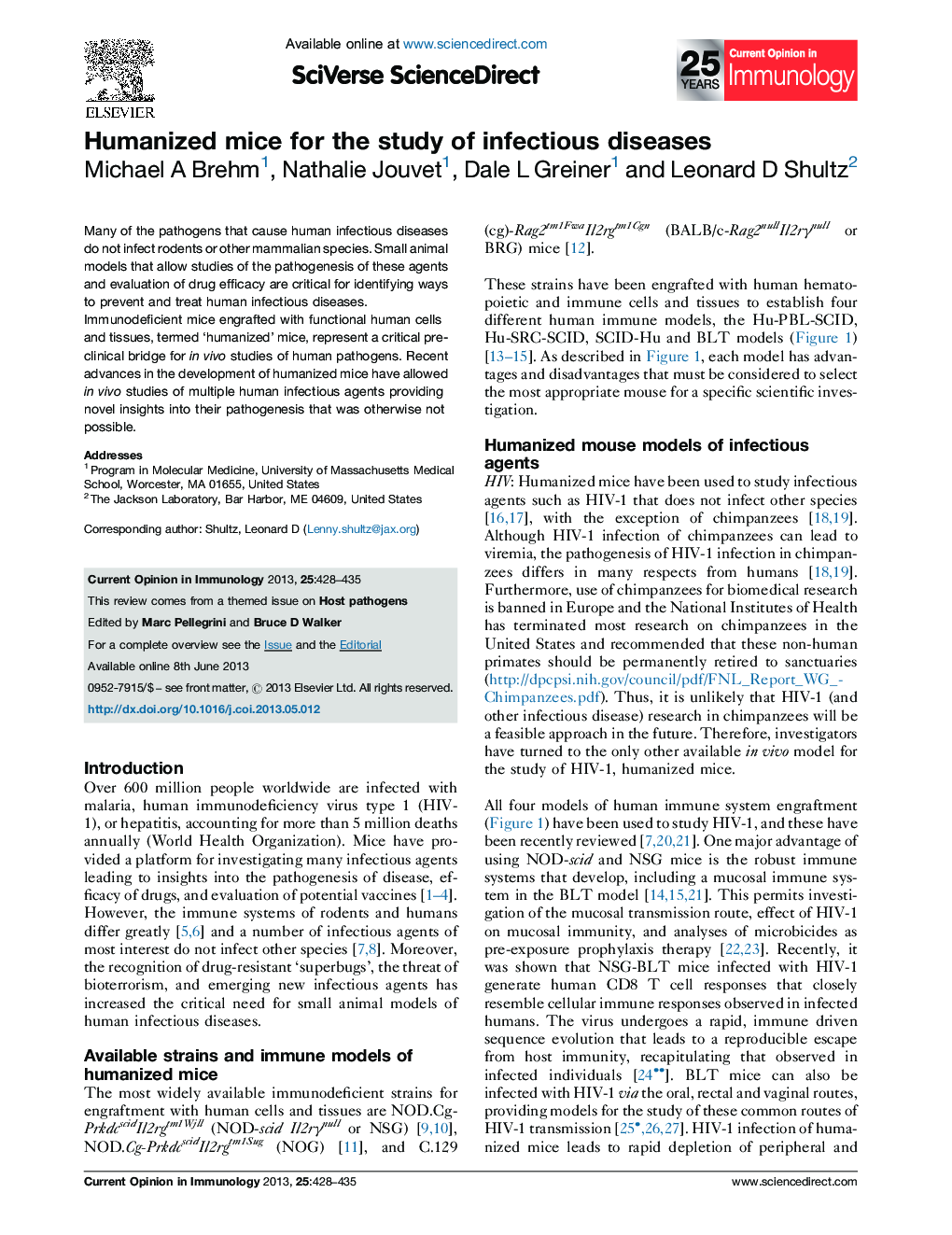| Article ID | Journal | Published Year | Pages | File Type |
|---|---|---|---|---|
| 6115073 | Current Opinion in Immunology | 2013 | 8 Pages |
Abstract
Many of the pathogens that cause human infectious diseases do not infect rodents or other mammalian species. Small animal models that allow studies of the pathogenesis of these agents and evaluation of drug efficacy are critical for identifying ways to prevent and treat human infectious diseases. Immunodeficient mice engrafted with functional human cells and tissues, termed 'humanized' mice, represent a critical pre-clinical bridge for in vivo studies of human pathogens. Recent advances in the development of humanized mice have allowed in vivo studies of multiple human infectious agents providing novel insights into their pathogenesis that was otherwise not possible.
Related Topics
Life Sciences
Immunology and Microbiology
Immunology
Authors
Michael A Brehm, Nathalie Jouvet, Dale L Greiner, Leonard D Shultz,
